Writers of “unlikeable” protagonists have it tough. They have to make their central character complex and interesting, and their story so compelling that a reader will put up with someone objectionable leading it. In real life, we might not be able to avoid the people we dislike: the narcissistic mother, the backstabbing boss, the professor with the personality disorder. But we can easily close a book.
An unlikable protagonist might be psychopathic, vain, silly, naïve, foolish, selfish, self-deluded, arrogant or, if you buy into a more superstitious notion, just plain evil. There are supremely unpleasant characters in literature—and not just in genre fiction—whose antics and boldness are so impressive that we can’t look away. It’s not just that they contrast so vividly with their supporting cast. We simply have to know what they’re going to do next. That’s when the story gets good.
The technique of employing an unlikable narrator didn’t begin with Gone Girl. Classic literature is full of them.

Anna Karenina, Anna Karenina, Leo Tolstoy, 1873 (serialized)
It seems almost cruel to fault a character who can’t follow her happiness because she’s trapped by her culture’s norms. The married Anna, deeply in love with the unattached Count Vronsky (who perhaps deserves his own place on this list), blows up her life by abandoning her family and bearing a child by her lover. Except she wants it both ways: a life with Vronsky and the approval of society. Unable to obtain a divorce, and incapable of braving it out against her detractors, she sinks into self-pity, and throws herself in front of a train. Why read Anna Karenina? It’s Tolstoy, for goodness sake, and it’s deliciously melodramatic and Russian and has plenty of characters who aren’t nearly as annoying.
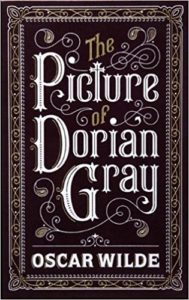
Dorian Gray, The Picture of Dorian Gray, Oscar Wilde, 1890
Oscar Wilde’s only novel exploits Victorian morality with devastating precision. His young Dorian Gray’s fervent wish is to remain ever as youthful as his portrait, which is in line with the musings of a vain Victorian dandy barely out of adolescence. But when Dorian’s wish comes true, the temptation to remain youthful costs him the soul he so dramatically offered. Watching him destroy the love and life of the innocent Sybil Vane, murder the artist who created the portrait that ages while he does not, and ruin countless other lives and reputations with his headlong debauchery, is akin to watching a slow motion, fifty-car highway pileup. Self-disgust doesn’t make Dorian any more palatable, but it’s almost impossible to stop reading before his bitter, ugly end.
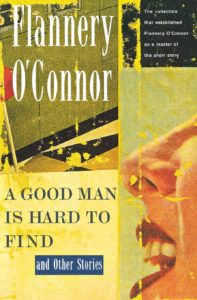
The Grandmother, A Good Man is Hard to Find (short story), Flannery O’Connor, 1953
Narcissist, hypocrite, fantasist. The grandmother at the center of O’Connor’s classic short story initiates a dramatic chain of events that gets her entire family, including her grandchildren, murdered. She believes that everyone around her should bend to her beliefs and whims, and she shapes her self-righteous commentary and arguments to (in her mind) represent herself as an important, respectable, and piously Christian woman. Her desperate need for acknowledgement results in a fantasy that takes her vacationing family down an unfamiliar road where a freak accident will leave them all at the mercy of a notorious killer. While the story is fraught with religious and moral implications, it’s also a perfect gem of a read.

Humbert Humbert, Lolita, Valadimir Nabokov, 1955
Pedophile, con man, smug pedant. What’s to like about Humbert Humbert, rapist of twelve-year-old Dolores Haze of Lolita? Outside of Humbert’s eloquent storytelling skills that prove him to be one of the most unreliable narrators in western literature, there’s very little. Yet Lolita still grips the imaginations of a wide variety of readers. How many young or naïve readers buy into Humbert’s novel-length whine that he’s been seduced by a wily child? How many readers pick it up simply for titillation? But viewed through enlightened eyes, the duplicitous Humbert Humbert is the engine of a great twentieth century horror novel.
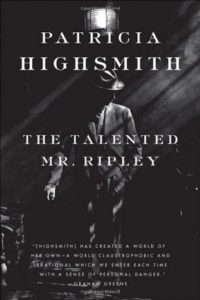
Tom Ripley, The Talented Mr. Ripley, Patricia Highsmith, 1955
Psychopaths aren’t necessarily unlikeable, and Tom Ripley has a flattering, swindler’s charm that often works on his fellow characters, as well as many readers. His most prominent qualities are similar to those of many psychopaths: he’s remorseless, arrogant, charming, deceitful, and manipulative. He’s also murderous, but he murders with purpose, particularly when someone threatens his enjoyment of the finer things in life. On a list of unlikeable protagonists, he might be the least unlikeable, second only to the more recent Dexter Morgan, of Jeff Lyndsay’s Dexter series. At least Dexter keeps his murders focused on serial killers, and doesn’t project Ripley’s highly irritating arrogance.
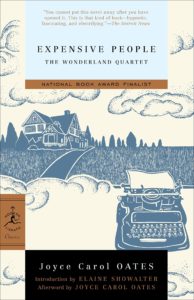
Richard Everett, Expensive People, Joyce Carol Oates, 1968
Richard Everett, repulsive child murderer, doesn’t want to be pitied. Expensive People is the fictional Richard’s confessional memoir that recollects the troubling details of his prosperous, suburban, 1960s childhood. It’s not just Richard who is unlikable here. He comes by his unpleasantness honestly enough, through the behavior modeled by his restless, selfish father and neglectful writer of a mother. His wry, witty, and often sarcastic tone is recognizable as that of a bitterly disappointed but clever man-child. Given the vulnerability of every young child, it should be a natural for the contemporary reader to pity Richard his early life, yet condemn his brutal actions. But it’s not so easy. Come for Oates’s suspense skills and superior hand with the grotesque, and stay for the alarming food porn.
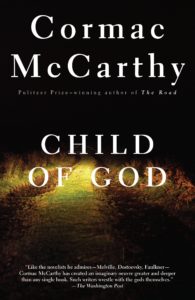
Lester Ballard, Child of God, Cormac McCarthy, 1973
Cormac McCarthy’s second novel has limited appeal for readers who don’t appreciate his early work, which could be described as brutal and intense, with a side of poetic horror. Lester Ballard, deprived of his family and falsely accused of rape, is cast out of society, which has never been comfortable with his violent strangeness. He slides into inexcusable depravity, becoming a necrophilic serial killer who eventually retreats to a cave with his corpses. They don’t get less likable than Lester. The novel’s intensity, broad vision of Ballard’s tragic existence in our world, and tight focus on his descent make it unique and strangely beautiful.
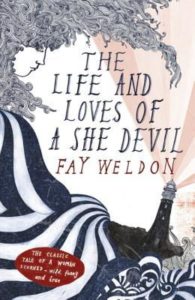
Ruth, Life and Loves of a She-Devil, Fay Weldon, 1983
Ruth is another female character it’s hard to fault for being unpleasant. Hers is a darkly comic revenge story that’s become a classic of twentieth-century feminist fiction. Tormented and ignored by her spiteful, disrespectful children, and dumped by her accountant husband for a sexy romance novelist, Ruth turns the gas on in their house, ignites it, and leaves. She’s not an attractive woman, and remakes herself by the most painful of surgical methods to get her revenge body, then forms a profitable business employing similarly unhappy women. Her revenge on her tormentors is slow and exacting. While no one dies as a result, her revenge is deeply painful for her targets and a few innocent bystanders, leaving the reader to wonder if the end justifies the means.
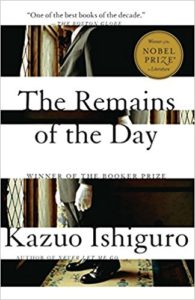
Stevens, Remains of the Day, Kazuo Ishiguro, 1989
If there ever was a character with a fatal case of excessive dignity, it’s Stevens. The novel is told in first person, and Stevens is so blatantly self-deceiving that one has a strong desire to douse him with a pail of cold water to wake him from his delusions. He comes maddeningly close to accepting that he’s the one responsible for losing the love of his life, but the very idea that he deserved/did have a true love gets in the way. Ishiguro’s genius is that he compels the reader bring their own vision of what Stevens’ life could have been like, thereby investing the reader in the story even if Stevens is less than cooperative.
What novels would you add to the list?

















